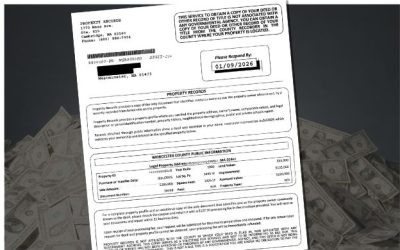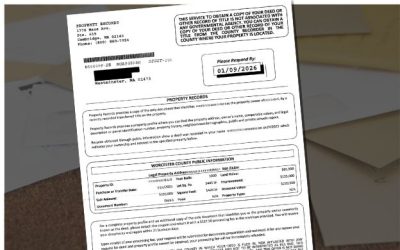
Jun 19, 2025 | Around The Home, Around The Hoome, Artificial intelligence, Buying Real Estate, Chapter 7 Bankruptcy, Consumer Tips, Credit Scoring, Fair Housing, Federal Reserve, FHFA, Financial Crisis, Financial Fraud, Financial Reports, Foreclosure, Happy Thanksgiving, Holidays, Home Building Tips, Home Buyer Tips, Home Buying Tips, Home Care, Home Care Tips, Home Closings, Home Decorating, Home Financing Tips, Home Maintenance, Home Mortgage, Home Mortgage Tips, Home Seller Tips, Home Selling Tips, Home Tips, Home Values, Homebuyer Tips, Homeowner Tips, Housing Analysis, Housing Market, Interesting Stuff, Investment Properties, Legislation, Market Outlook, Mortagage Tips, Mortgage, Mortgage Guidelines, Mortgage Lenders, Mortgage Rates, Mortgage Tips, mortgage-rates-whats-ahead-september-17-2012, News, Organization Tips, Personal Finance, Probate Law, Rankings, Real Estate, Real Estate Agent Information, Real Estate Definitions, Real Estate Tips, Real Estate Trends, Realtors, Selling Real Estate, Selling Your Home, Short Sales, Statistics, Success, Taxes, The Economy, Title Insurance
Whether you’re buying with cash, investing from abroad, transferring property to a family member, or just trying to close without a headache, you’ll want to know what can trigger federal scrutiny — and how to stay off the radar.
From flagged wire transfers and shell companies to gift-of-equity sales and land near military zones, this isn’t your average title-and-keys situation.
It’s real estate with a side of national security, tax enforcement, and financial crime prevention.
Is Big Brother Watching Your Home Sale?
What Buyers and Sellers Should Know About Federal Oversight
You’re Not Paranoid — They Might Actually Be Watching
What you didn’t know on how federal agencies keep tabs on select real estate transactions.
Your Closing Packet Could Be a Federal File
How Your Paper Trail Might Raise Red Flags — And What You Can Do About It
What the FBI, IRS, and Homeland Security
Could See in Your Closing Docs
We’re unpacking what agencies might spot inside your deal’s fine print.
Caught in the Crosshairs? What Triggers Federal Interest in Your Home Sale
The Top Red Flags That Could Invite a Closer Look from Washington
Cash, LLCs, or Land Near a Base? You Might Just Be a Target
The warning signs that put your deal on the government’s radar — and how to stay clear.
Follow the Money: How the IRS Tracks Financial Crimes Through Real Estate
From Unreported Income to Shell Game Schemes
— What IRS-CI Is Looking For
Your Closing Could Be an Audit Trigger — Here’s How the IRS Sees It
Explore the patterns, documents, and loopholes that turn ordinary deals into criminal cases.
Providing title, escrow, closing and settlement services to clients throughout Massachusetts and New Hampshire
“As a realtor, the Rocheford team went above and beyond to make sure my client was not only protected from a legal standpoint but also operated in a timely manner to execute the sale of my client’s dream home.
Thank you for the great experience for myself and my client! Looking forward to our next deal together!”
Realtor®
“I don’t usually use attorneys that often. But if an attorney is needed, I couldn’t recommend this law office enough. I always pride myself on responding quickly to emails and calls, but I was in awe of how fast paralegal Robert Heckman would respond to us. We sold our house a couple months ago and then did a two-part land swap with neighbors and my folks, and both transactions were seamless, including coming in to sign paperwork.
In short, if you need a law office that is responsive and attentive to detail, definitely consider them!”
Leominster, MA
“Excellent, conscientious and professional.
The communication throughout our Real Estate transaction was better than expected. We thought the fee to be very reasonable considering the work accomplished on our behalf. The law office handled the entire closing without us having to be in attendance….as we requested. I have had experience with very competent lawyers and law firms as the result of my previous profession. I would place this law office right up there among the best in their real estate field of expertise and surprisingly at very reasonable and affordable rates/fees.”
Buzzards Bay, MA

Jun 19, 2025 | Federal Reserve, Financial Fraud, Home Buyer Tips, Home Mortgage, Homebuyer Tips, Mortgage, Realtors, Selling Real Estate, Selling Your Home, Taxes, The Economy
Your Closing Could Be an Audit Trigger — Here’s How the IRS Sees It
When most people think of the IRS, they imagine audits and paperwork — not criminal agents working alongside the FBI and Homeland Security. But the IRS-Criminal Investigation Division (IRS-CI) is a powerful enforcement arm of the federal government, and real estate is one of its favorite trails to follow.
From luxury home purchases with unexplained funds to “gifted” equity that isn’t reported properly, the IRS-CI routinely uncovers criminal tax activity by analyzing real estate transactions. If you think your closing statement is just a formality — think again.
Real Estate as a Laundering Tool: Clean Property, Dirty Money
One of the most common IRS-CI cases involves individuals or entities using real estate to hide the source of illicit income.
Common Red Flags:
- Homes purchased with cash not supported by reported income
- Funds layered through multiple entities or relatives
- Repetitive buying and selling at inflated or deflated prices
Learn how IRS-CI tracks financial crimes through real estate
“Gift of Equity” Deals with Missing Paper Trails
It’s common in family-to-family sales to offer a discount — a “gift of equity.” But when these transfers aren’t properly documented, they can flag problems on both income tax and gift tax returns.
Triggers Scrutiny When:
- No gift letter is included in the mortgage or closing file
- Gift exceeds the annual IRS gift exemption and is not reported via Form 709
- Property is sold well below market value without explanation
IRS explanation of gift tax rules: When does a gift of equity trigger tax obligations?
Structuring or Smurfing Through Real Estate
IRS-CI also tracks “structuring,” also known as smurfing — where large sums of cash are broken into smaller amounts to avoid bank reporting thresholds.
How it Appears in Real Estate:
- Multiple down payments from different accounts or people
- Several transfers under $10,000 leading up to a purchase
- Sudden influx of funds from unrelated sources close to closing
These patterns are especially suspicious in all-cash or entity-based purchases.
Shell Companies and Fake Deductions
If the property is being purchased or sold through an LLC or trust, the IRS wants to know who actually controls the asset — especially when tax deductions or depreciation are claimed.
Triggers Scrutiny When:
- Owner hides behind multiple corporate layers
- Rental property expenses are exaggerated or fabricated
- Pass-through income isn’t declared properly
FinCEN’s Corporate Transparency Act ties directly into this enforcement
Review new rules on beneficial ownership disclosure
What This Means for Buyers, Sellers, and Agents
Whether you’re transferring a condo to your niece or selling a vacation home at a discount, the IRS-CI may see more than you expect. And in complex deals — especially those involving cash, gifts, or multiple parties — you could easily trigger review without realizing it.
IRS-CI agents don’t conduct routine audits — they build criminal cases. Your best protection is documentation, legal accuracy, and transparency.
Don’t Let a Paper Mistake Become a Tax Investigation
At The Law Office of David R. Rocheford, Jr., P.C., we guide every transaction with tax compliance in mind. Whether you’re transferring property to family, buying with equity, or structuring a trust sale — we help you stay within IRS guidelines and out of trouble.
Providing title, escrow, closing and settlement services to clients throughout Massachusetts and New Hampshire
“I would highly recommend David as a closing attorney. I have known David and have been using his office for many years. David’s professionalism when dealing with me, my closing department and most especially my clients has been always exemplary.”
SENIOR LOAN OFFICER, SHAMROCK FINANCIAL SERVICES
“The Law Office of Attorney David R. Rocheford, Jr. is by far the most exceptional real estate law office that I have had the pleasure of working with. The professionalism is by far second to none.”
SENIOR LOAN OFFICER, SALEM FIVE MORTGAGE SERVICES
“Attorney David Rocheford has provided settlement and title services for me and Greenpark Mortgage several years. He has assisted all of my clients, including my family and friends with mortgage closings. Always providing excellent service. Reliable and trustworthy!”

Jun 19, 2025 | Buying Real Estate, Financial Fraud, Home Closings, Home Mortgage, Home Seller Tips, Realtors, Statistics, Taxes
Cash, LLCs, or Land Near a Base? You Might Just Be a Target
In today’s security-conscious environment, real estate deals aren’t just between buyers and sellers — they’re being watched, analyzed, and sometimes flagged by federal agencies. And while the average home transaction flies under the radar, certain combinations of factors can put your deal squarely in the government’s crosshairs.
This post outlines the most common red flags that trigger federal interest — not because you’ve done something wrong, but because your transaction fits a high-risk profile.
All-Cash Purchases Over Federal Thresholds
All-cash deals aren’t inherently suspicious — but they circumvent the checks that come with traditional financing. That’s why they’re monitored more closely, especially in certain cities.
Triggers Scrutiny When:
- Purchase occurs in a FinCEN Geographic Targeting Order (GTO) region (like Boston, Miami, NYC, etc.)
- Buyer uses an entity (LLC, trust, partnership) rather than a personal name
- No mortgage or lender involvement, making the source of funds opaque
Check if your city is on FinCEN’s GTO watchlist
Foreign Buyers Purchasing Near Sensitive Locations
If you’re selling land or property near a military base, seaport, or energy facility, and your buyer is a foreign national or foreign-controlled company, your deal may come under review.
Triggers Scrutiny When:
- Buyer is from a geopolitically sensitive country (e.g., China, Russia, Iran)
- Property is within 100 miles of a designated sensitive site
- Transaction lacks full ownership transparency
Learn how CFIUS flags foreign real estate transactions
Use of Shell Companies or Anonymous Trusts
The U.S. government is increasingly focused on beneficial ownership transparency — knowing who is actually behind the deal.
Triggers Scrutiny When:
- The entity used is registered in a secrecy jurisdiction (Delaware, Cayman Islands, etc.)
- There is no clear beneficial owner disclosed at closing
- Documents reference multiple layers of ownership
See how the Corporate Transparency Act impacts real estate deals
Unusual Transaction Patterns or Repeated Flipping
Agencies like the IRS and FBI monitor the real estate market for signs of fraudulent investment behavior or tax evasion schemes.
Triggers Scrutiny When:
- Property is bought and resold quickly at an inflated price
- There’s a series of transactions between related parties
- Funds move between multiple accounts or buyers during closing
FBI tips on recognizing property flipping fraud
Wire Transfers from High-Risk Countries or Banks
Closings often involve multiple wire transfers — but not all financial institutions are treated equally. Some are flagged for lax compliance standards or sanctions risks.
Triggers Scrutiny When:
- Funds are transferred from offshore accounts with unclear sourcing
- Transfers pass through non-U.S. banks flagged by the Treasury Department
- The transfer amount and origin don’t match the buyer’s stated income or citizenship
Check OFAC’s sanctions lists (used by Homeland Security and Treasury)
How to Avoid Red Flags — Without Wrecking Your Deal
You don’t need to avoid cash, trusts, or foreign buyers altogether — but you do need to approach them with transparency and legal oversight.
Here’s how to protect your closing:
- Use a qualified closing attorney who knows what will raise compliance concerns
- Disclose beneficial ownership if you’re buying through a business or trust
- Avoid unusual structuring (like passing ownership through a friend or nominee)
- Keep clean documentation for funds, identity, and intent
Smart Deals Don’t Get Flagged — They Get Cleared
At The Law Office of David R. Rocheford, Jr., P.C., we know how to structure your closing so that it passes every test — legal, financial, and federal. Whether you’re selling to a foreign buyer or buying with cash, we keep your transaction clean and compliant.
Providing title, escrow, closing and settlement services to clients throughout Massachusetts and New Hampshire
“I would highly recommend David as a closing attorney. I have known David and have been using his office for many years. David’s professionalism when dealing with me, my closing department and most especially my clients has been always exemplary.”
SENIOR LOAN OFFICER, SHAMROCK FINANCIAL SERVICES
“The Law Office of Attorney David R. Rocheford, Jr. is by far the most exceptional real estate law office that I have had the pleasure of working with. The professionalism is by far second to none.”
SENIOR LOAN OFFICER, SALEM FIVE MORTGAGE SERVICES
“Attorney David Rocheford has provided settlement and title services for me and Greenpark Mortgage several years. He has assisted all of my clients, including my family and friends with mortgage closings. Always providing excellent service. Reliable and trustworthy!”

Jun 19, 2025 | Buying Real Estate, Consumer Tips, Federal Reserve, Financial Fraud, Financial Reports, Home Buyer Tips, News, Selling Real Estate, Selling Your Home
Your Closing Packet Could Be a Federal File — Here’s Why
When you’re finalizing a real estate transaction, your focus is likely on the price, terms, and closing date — not on what a federal agency might find in your paperwork. But if certain conditions apply, your stack of signed documents could become part of a federal investigation.
From title fraud to suspicious wire transfers, real estate closings contain exactly the kind of data federal agencies use to detect fraud, money laundering, or foreign interference. Let’s break down the key documents that could raise red flags — and how to keep your transaction clean.
Settlement Statements (CD/HUD-1): Show Me the Money
These documents detail the financial anatomy of your transaction — where the money is coming from and where it’s going.
Agencies like the IRS Criminal Investigation Division (IRS-CI) and Homeland Security Investigations (HSI) use these to detect:
- Undisclosed cash sources
- Overstated or fake expenses
- Unusual wire transfers or third-party contributions
IRS-CI investigates tax evasion and unreported income often spotted through property records.
Learn how IRS-CI tracks financial crimes through real estate
Power of Attorney or Signature Authority: Who’s Really Involved?
Documents granting someone else signing authority — especially in cash or trust purchases — can prompt FBI interest if:
- The grantor isn’t properly identified or verified
- A straw buyer is suspected (someone buying on behalf of an undisclosed party)
- The purchase is connected to shell companies with no clear owner
These red flags are commonly tied to fraud and money laundering investigations.
Read the FBI’s guidelines on common real estate fraud patterns
Proof of Funds or Bank Letters: Show Your Work
Cash buyers are often asked to show proof of funds, but not all banks or letters are equal in the eyes of compliance officers.
Federal agencies may scrutinize:
- Large transfers from offshore accounts
- Lack of financial institution transparency
- Inconsistencies between stated income and assets
Homeland Security Investigations (HSI) targets international financial crimes — especially involving real estate.
See how HSI investigates financial crimes tied to real estate
Entity-Based Transactions: LLCs, Trusts, and Shell Games
When a home is purchased through a legal entity — especially in cash — the title and closing documents must disclose the “beneficial owner.”
If they don’t, the transaction may:
- Violate FinCEN Geographic Targeting Orders
- Trigger FinCEN reporting requirements from title companies
- Be flagged for money laundering or sanctions evasion
Review FinCEN’s current rules for real estate ownership transparency
Tax Documents: When Closings and Capital Gains Collide
The IRS reviews real estate closings for unreported capital gains, under-the-table transactions, or misuse of tax exemptions.
Closings can trigger audits when:
- Sale proceeds are underreported
- A home is falsely claimed as a primary residence
- Form 1099-S isn’t issued when it should be
Sellers attempting to avoid tax obligations through title maneuvering or “gift-of-equity” deals should be cautious.
Understand when Form 1099-S is required in real estate transactions
What You Can Do (Besides Panic)
You don’t have to be laundering millions or working for a foreign government to attract unwanted attention. In most cases, red flags are raised by incomplete, inconsistent, or unexplained paperwork. Here’s how to stay ahead:
- Work with a closing attorney who understands both the legal and compliance landscape
- Avoid cutting corners on financial disclosures or title documentation
- Be honest and thorough when structuring transactions involving trusts, foreign buyers, or LLCs
Want to Keep the Feds Out of Your Closing?
Our team at The Law Office of David R. Rocheford, Jr., P.C. ensures every “i” is dotted and every “t” is lawyer-checked. We review your paperwork with a compliance lens — so you don’t accidentally invite scrutiny.
Providing title, escrow, closing and settlement services to clients throughout Massachusetts and New Hampshire
“I would highly recommend David as a closing attorney. I have known David and have been using his office for many years. David’s professionalism when dealing with me, my closing department and most especially my clients has been always exemplary.”
SENIOR LOAN OFFICER, SHAMROCK FINANCIAL SERVICES
“The Law Office of Attorney David R. Rocheford, Jr. is by far the most exceptional real estate law office that I have had the pleasure of working with. The professionalism is by far second to none.”
SENIOR LOAN OFFICER, SALEM FIVE MORTGAGE SERVICES
“Attorney David Rocheford has provided settlement and title services for me and Greenpark Mortgage several years. He has assisted all of my clients, including my family and friends with mortgage closings. Always providing excellent service. Reliable and trustworthy!”

Jun 19, 2025 | Buying Real Estate, Financial Fraud, Home Buying Tips, Interesting Stuff, Investment Properties, Mortgage Lenders, Mortgage Tips, Real Estate
If you’re buying or selling a home, you might assume it’s a personal, private transaction — just you, your agent, and the closing attorney. But in certain cases, federal agencies like FinCEN, Homeland Security, and even the FBI are quietly watching the real estate market.
This isn’t a reason to panic, but it is worth understanding. Here’s how — and why — the government may be involved in your next transaction:
Anti-Money Laundering: FinCEN’s Role in Real Estate
The U.S. Treasury’s Financial Crimes Enforcement Network (FinCEN) monitors real estate deals in specific high-risk areas to crack down on money laundering through all-cash home purchases.
- These regulations apply in select cities through Geographic Targeting Orders (GTOs).
- They require title companies to report the beneficial ownership of entities buying real estate in cash over certain thresholds.
- As of 2024, targeted areas include New York, Miami, San Diego, Los Angeles, San Francisco, and Boston.
Read more on FinCEN’s official Geographic Targeting Orders
CFIUS and Foreign Buyers: National Security Meets Real Estate
The Committee on Foreign Investment in the United States (CFIUS) has expanded its oversight to include foreign real estate purchases near sensitive sites, like military bases and ports.
- Under the Foreign Investment Risk Review Modernization Act (FIRRMA), CFIUS can now review real estate deals — even when no company is being acquired.
- In 2023, the Air Force raised national security concerns after a Chinese firm purchased land near a base in North Dakota.
Learn how CFIUS reviews real estate deals under FIRRMA
Read CNBC’s coverage of the North Dakota land controversy
Immigration Status & Mortgage Oversight
Mortgage lenders are required to verify a borrower’s identity and legal status — and that can intersect with immigration records. While not a direct Homeland Security audit, your file could draw attention if:
- False immigration documents are used
- Fraud is suspected on the loan application
- You’re applying for a government-backed loan, like FHA or VA
See FHA loan requirements for non-citizens
FBI & IRS Involvement: When Real Estate Becomes a Red Flag
The FBI and IRS-Criminal Investigations (CI) monitor patterns that may suggest:
- Title fraud or forged documents
- “Straw buyer” schemes where someone falsely claims to be the primary buyer
- Real estate used to hide unreported income or launder money
These agencies don’t monitor every deal, but they do act when something doesn’t add up.
Review the FBI’s real estate fraud alerts
Most buyers and sellers won’t hear from a federal agency during a transaction — but in today’s security-conscious landscape, transparency and legal compliance matter more than ever.
- Selling to a foreign investor? Disclose clearly and understand CFIUS boundaries.
- Buying in cash with a trust or LLC? Expect extra scrutiny in some cities.
- Applying for a mortgage? Make sure your documentation is accurate and legal.
As always, work with a reputable closing attorney and disclose honestly — it’s the best way to keep your deal (and your name) off anyone’s watchlist.
Want to Make Sure Your Deal Is Air-Tight?
Whether you’re buying or selling, we help you cover every angle — from contract review to full closing services. At The Law Office of David R. Rocheford, Jr., P.C., we work to keep your transaction compliant, smooth, and secure from start to finish.
Providing title, escrow, closing and settlement services to clients throughout Massachusetts and New Hampshire
“I would highly recommend David as a closing attorney. I have known David and have been using his office for many years. David’s professionalism when dealing with me, my closing department and most especially my clients has been always exemplary.”
SENIOR LOAN OFFICER, SHAMROCK FINANCIAL SERVICES
“The Law Office of Attorney David R. Rocheford, Jr. is by far the most exceptional real estate law office that I have had the pleasure of working with. The professionalism is by far second to none.”
SENIOR LOAN OFFICER, SALEM FIVE MORTGAGE SERVICES
“Attorney David Rocheford has provided settlement and title services for me and Greenpark Mortgage several years. He has assisted all of my clients, including my family and friends with mortgage closings. Always providing excellent service. Reliable and trustworthy!”
Oct 26, 2020 | Financial Fraud
 Last week’s economic reporting included readings from the National Association of Home Builders on housing markets, and Commerce Department readings on housing starts and building permits issued. Data on sales of previously-owned homes were also released. Weekly readings on mortgage rates and jobless claims were also released.
Last week’s economic reporting included readings from the National Association of Home Builders on housing markets, and Commerce Department readings on housing starts and building permits issued. Data on sales of previously-owned homes were also released. Weekly readings on mortgage rates and jobless claims were also released.
NAHB Housing Market Index Rises in October
The National Association of Home Builders reported an index reading of 85 for their Housing Market Index in October. This was the third consecutive month the HMI had a record reading and was the second consecutive month the index achieved readings over 80. Readings over 50 indicate that most home builders are confident about housing market conditions.
Component readings of the Housing Market Index also rose in October. Builder confidence in current housing market conditions rose two points to 90. Builder confidence in housing market conditions over the next six months rose three points to an index reading of 88, and builder confidence in buyer traffic in single-family housing developments was unchanged at an index reading of 74. Until recently, buyer traffic readings typically remained below 50.
Regional confidence readings were mixed; builder confidence in the Northeast rose by seven points to an index reading of 88. Builder confidence also rose by seven points in the West but was one point lower in the Midwest with a reading of 77. Builder confidence was two points lower in the South with an index reading of 83.
Commerce Department Reports Increases in Housing Starts and Building Permits
Housing starts and building permits issued rose in September; housing starts rose to a seasonally-adjusted annual pace of 1.415 million starts. Analysts expected a reading of 1.45 million housing starts based on August’s reading of 1.388 million new single-family homes started.
Building permits issued also rose in September with 1.553 million permits issued on a seasonally-adjusted annual basis and exceeded August’s reading of 1.476 million permits issued and 1.518 million permits expected.
Mortgage Rates, Jobless Claims Fall
Freddie Mac reported lower average mortgage rates last week as the rate for 30-year fixed-rate mortgages fell by two basis point s to 2.80 percent; mortgage rates for 15-year fixed-rate mortgages averaged 2.33 percent and were two basis points lower. The average rate for 5/1 adjustable rate mortgages fell by three basis points to 2.87 percent. Discount points averaged 0.60 percent for fixed-rate mortgages and 0.30 percent for 5/1 adjustable rate mortgages.
Initial jobless claims fell to 787,000 new claims filed as compared to the prior week’s reading of 842,000 new claims filed. Last week’s reading for all initial claims filed fell below 800,000 claims for the first time since the pandemic started. Ongoing jobless claims also fell last week with 8.37 million continuing claims filed as compared to 9.40 million continuing jobless claims filed in the prior week.
Sales of previously-owned homes rose in September at a seasonally-adjusted annual rate of 6.54 million sales. Analysts expected 6.36 million sales based on August’s reading of 5.98 million sales. Low mortgage rates and demand for homes continued to boost home sales.
What’s Ahead
Readings on new and pending home sales, Case-Shiller Home Price Indices, and consumer sentiment will be released this week. Weekly readings on mortgage rates and jobless claims will also be published.





















 Last week’s economic reporting included readings from the National Association of Home Builders on housing markets, and Commerce Department readings on housing starts and building permits issued. Data on sales of previously-owned homes were also released. Weekly readings on mortgage rates and jobless claims were also released.
Last week’s economic reporting included readings from the National Association of Home Builders on housing markets, and Commerce Department readings on housing starts and building permits issued. Data on sales of previously-owned homes were also released. Weekly readings on mortgage rates and jobless claims were also released.